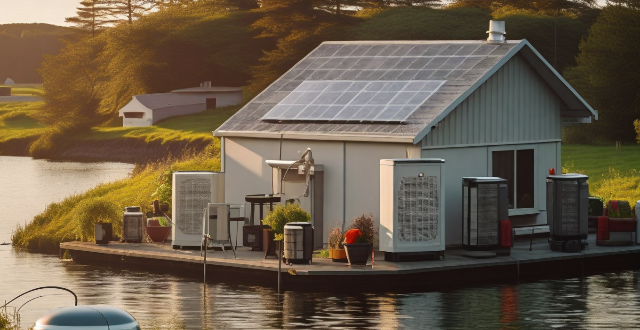Energy conservation is essential for reducing environmental impact and utility bills. Here are some energy-saving tips for households: using energy-efficient light bulbs, maximizing natural light, setting thermostats to comfortable temperatures, using ceiling fans instead of air conditioning, sealing windows and doors, insulating the home, unplugging electronics when not in use, washing clothes in cold water, choosing energy-efficient appliances, lowering water heater temperature settings, insulating water heaters and pipes, fixing leaky faucets and showerheads, turning off electronic devices when not in use, using power management features on computers, and avoiding leaving devices on standby mode overnight. By implementing these tips, households can reduce their energy consumption and save money while contributing to a healthier environment.

Energy-Saving Tips for Households
Energy conservation is an important aspect of reducing environmental impact and lowering utility bills. Here are some energy-saving tips for households:
1. Lighting
- Use energy-efficient light bulbs such as LED or CFL bulbs.
- Turn off lights when not in use.
- Maximize natural light during the day by opening curtains and blinds.
2. Heating and Cooling
- Set thermostat to a comfortable temperature (68°F in winter and 78°F in summer).
- Use ceiling fans instead of air conditioning whenever possible.
- Seal windows and doors to prevent drafts.
- Insulate your home to keep warm air inside during winter and cool air inside during summer.
3. Appliances
- Unplug electronics when not in use or use smart power strips to turn off standby power.
- Wash clothes in cold water and hang dry them instead of using a dryer.
- Only run dishwasher and washing machine with full loads.
- Choose energy-efficient appliances with ENERGY STAR rating.
4. Water Heater
- Lower the temperature setting on your water heater.
- Insulate your water heater and pipes to save energy.
- Fix leaky faucets and showerheads to reduce hot water usage.
5. Electronics
- Turn off televisions, computers, and other electronic devices when not in use.
- Use power management features on computers to reduce energy consumption.
- Avoid leaving devices on standby mode overnight.
By implementing these energy-saving tips, households can significantly reduce their energy consumption and save money on utility bills while also contributing to a healthier environment.